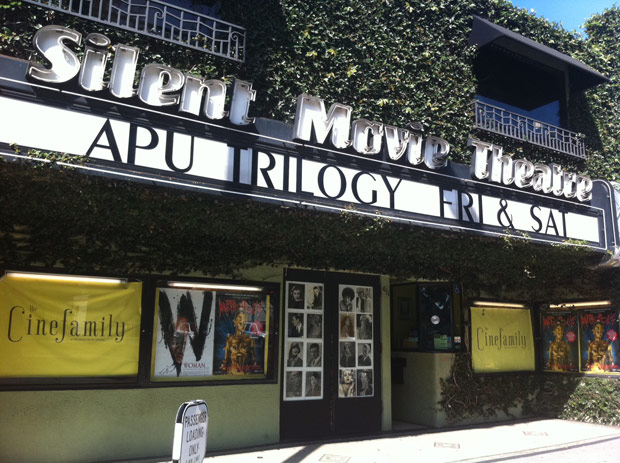
In the vast, intricate tapestry of cinematic and television storytelling, a curious phenomenon often unfolds: the narrative that deliberately misleads, the story that, from its very inception, presents a carefully constructed illusion. Whether we realize it or not, some of our favorite movies have been lying to us all this time, not through factual inaccuracy, but through a masterful manipulation of audience expectation, leading us down paths only to reveal a completely different, often profound, agenda. These aren’t mere plot twists; they are foundational deceptions woven into the very fabric of the narrative, designed to challenge our perceptions and deepen our engagement.
This deliberate artistic choice can stem from various sources, sometimes the fault of a nervous studio’s manipulative marketing, aiming to broaden appeal or conceal controversial themes. More frequently, however, it is the deliberate intent of the filmmaker, an audacious gamble to subvert tropes, provoke thought, and leave an indelible mark on the viewer’s psyche. The power of these films lies in their ability to defy the initial expectations of their audience, taking us on a journey where the destination is far removed from the anticipated, and the end result was undoubtedly all the better for it, enriching the viewing experience with layers of unexpected truth.
The allure of these narrative “lies” resonates deeply because a little deception makes for some compelling storytelling. These movies and shows are packed with tales that twist, turn, and tantalize, all centered around the art of the lie. They masterfully explore themes of trust, betrayal, and the often blurry line between reality and fiction, acting as a dark mirror reflecting our own fears and fascinations with honesty in our lives. As we delve into a selection of these brilliant deceptions, we will uncover how filmmakers have leveraged the power of narrative misdirection to craft unforgettable experiences that truly begin as one thing and end as another, forcing us to rethink everything we thought we knew.

1. **Fight Club (1999 Film): The Grand Deception of Modern Nihilism**Among the pantheon of films that masterfully employ narrative deception, *Fight Club* stands as an undeniable paragon, a cinematic experience that was a lie from its unsettling opening frames to its explosive conclusion. A surface reading of *Fight Club* appears to treat it as a celebration of directionless masculinity and the rejection of consumerism, a rebellious anthem for those disaffected by capitalist society. This initial interpretation was so pervasive that it spurred the actual formation of ‘Fight Clubs’ in its wake and inspired countless viewers to emulate the charismatic, anarchic figure of Tyler Durden, played with electrifying intensity by Brad Pitt.
Yet, this popular interpretation is the film’s most brilliant trick, its most profound lie. If you take away the movie’s sheer “coolness” and David Fincher’s snazzy directorial tricks, *Fight Club* is at its core a searing critique of Project Mayhem, the very movement it appears to glorify. This subversive intent is spelled out no better than through its leader, the Narrator (Edward Norton), suffering from mental illness. His radical alter ego, Tyler Durden, is not a figure to aspire to, but a manifestation of a fractured psyche, a desperate response to his own existential malaise.
More than just a critique of a destructive, pseudo-revolutionary movement, the film is a biting mockery of sheep mentality, meticulously dismantling the very allure of unthinking adherence, whether to consumerism or to counter-culture. It takes to task both the protagonist’s commodity-obsessed life at the beginning of the film, where his identity is defined by his IKEA furniture, and Tyler’s seemingly liberated, yet equally destructive and conformist, destitute existence, where he leads an army in his stead. Both paths, the film argues, are forms of enslavement, one by possessions, the other by a charismatic but ultimately dangerous ideology.
Unfortunately, the intricate layers of satire and critique were often lost on a segment of its audience. Downtrodden men and hormonal teenage boys, drawn to the visceral action and edgy nihilism, tended to buy into the superficial message, mistaking the film’s provocative imagery for genuine endorsement. In fact, the movie is delivering the exact opposite message beneath all that admittedly awesome fighting and destruction. It’s a cautionary tale, a psychological thriller disguised as an anti-establishment manifesto, urging a critical examination of self and society rather than blind rebellion.
Let’s put it this way: the film’s narrative arc serves as a stark warning. If your life choices, whether driven by consumerist ennui or radical zeal, cause you to end up putting a bullet through your face, it might be worth reconsidering them. When we frame it like that, the film’s true message, its devastating reality behind the grand lie of its initial appeal, seems so obvious, revealing itself as a profound meditation on identity, sanity, and the perilous search for meaning in a disillusioned world.
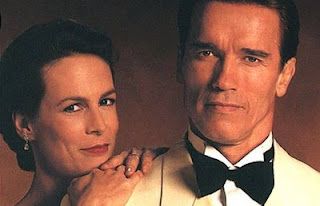
2. **True Lies (1994 Film): The Double Life as a Deliberate Deception**Stepping into the thrilling world of *True Lies*, the 1994 action-comedy blockbuster, we encounter a film whose very title immediately signals its embrace of deception as a core narrative device. While not a psychological twist in the vein of *Fight Club*, *True Lies* masterfully constructs a world built upon hidden identities and concealed realities, where the protagonist’s entire existence is a meticulously orchestrated falsehood. It’s a compelling example of how films with “lies” in their titles promise, and deliver, narratives that twist, turn, and tantalize through the art of the lie.
The film masterfully explores themes of trust and betrayal, as well as the often blurry line between reality and fiction, through the prism of its central character, Harry Tasker. By day, he is a seemingly mundane computer salesman, a somewhat distant husband and father. Yet, this entire persona is a grand deception, a cover for his true profession as a top-secret government agent. This double life, maintained with an almost unimaginable level of secrecy, forms the narrative backbone, creating dramatic tension and comedic opportunities as the two worlds inevitably begin to collide.
The allure of *True Lies* stems from the inherent irony and the spectacular scale of its protagonist’s deception. Audiences are privy to the truth that his wife and daughter are not, creating a fascinating dynamic. We watch as Harry navigates perilous spy missions with effortless cool, only to return home and fumble through domestic trivialities, desperately trying to maintain his carefully constructed lie. This dichotomy creates a compelling blend of suspense and humor, as the elaborate charade teeters on the brink of exposure, yet somehow always manages to be maintained.
The oxymoronic nature of “true lies” is central to the film’s premise: a life meticulously crafted from falsehoods, yet paradoxically, lived with a certain authentic commitment to protecting these secrets for the sake of national security. This duality forces a subtle contemplation of identity, questioning what constitutes a “true” self when one’s public and private personas are so diametrically opposed. Harry’s “lie” is not malicious but necessary, a burden he carries for the greater good, yet it profoundly impacts his closest relationships, creating a rich ground for examining personal and professional identities and their inevitable clashes.
Ultimately, *True Lies* captivates by presenting a continuous unfolding of concealed truths, where Harry’s heroic espionage life is as much a performance as his mundane family man facade. The narrative is a dynamic exploration of how deception, when embraced as a way of life, shapes character and consequence. It’s a brilliant demonstration of how a film can be built entirely on a fundamental “lie” from its very premise, entertaining us while subtly reflecting on the complexities of honesty, trust, and the multifaceted nature of human existence in a world where nothing is quite what it seems.
3. **Separate Lies (2005 Film): The Tangled Web of Personal Deceptions**Continuing our journey through narratives built on purposeful deception, we arrive at *Separate Lies*, the 2005 film whose title immediately plunges us into a world of intricate personal falsehoods and moral ambiguities. Like its counterparts that center around the art of the lie, this film is a masterclass in storytelling that promises to “twist, turn, and tantalize,” drawing viewers into a compelling examination of human nature when confronted with uncomfortable truths and the desire to conceal them. It foregrounds the idea that individual deceptions can have profound, unforeseen consequences, touching multiple lives.
This film, in the tradition of compelling deceptive narratives, thrives on revealing the layers of individual falsehoods, showcasing how, as the broader context suggests, “every lie tells its own truth about human nature.” In *Separate Lies*, this theme manifests through characters entangled in distinct, personal deceptions that, while seemingly isolated, ultimately intersect and unravel with devastating clarity. It explores how private secrets, born from a myriad of motives—fear, protection, self-preservation—can form a complex web that ensnares not only the deceiver but also the deceived.
The psychological depth achieved by such “deceptive narratives” is particularly evident here, as *Separate Lies* delves into “our own fears and fascinations with honesty in our lives.” The film meticulously examines the ripple effects of these private deceptions, demonstrating how even seemingly innocuous or well-intentioned lies can erode trust, distort reality, and ultimately lead to profound emotional and ethical fallout. It’s a poignant exploration of how the fragility of truth can shatter relationships and expose the raw vulnerabilities beneath polished exteriors.
The brilliance of *Separate Lies* lies in its effective use of the “art of the lie” to build dramatic tension and explore complex ethical dilemmas. The narrative challenges viewers to scrutinize characters’ motives, perceive hidden agendas, and contemplate the delicate, often precarious nature of trust within intimate relationships. It pushes us to question how well we truly know those closest to us, and how much of what we perceive as reality is, in fact, constructed on a foundation of unspoken truths and deliberate omissions, creating a powerful sense of unease and intrigue.
Ultimately, *Separate Lies* captivates by presenting a world where truth is fragmented, held by individuals in disparate, often contradictory pieces. The cumulative effect is a powerful commentary on human vulnerability, the desperate measures people take to protect their secrets, and the inevitable, often painful, fallout when those “separate lies” converge. It serves as a stark reminder that while deception may offer temporary solace or escape, its true cost is often paid in the currency of trust, revealing the profound and often tragic consequences of living a life built on an elaborate framework of personal untruths.
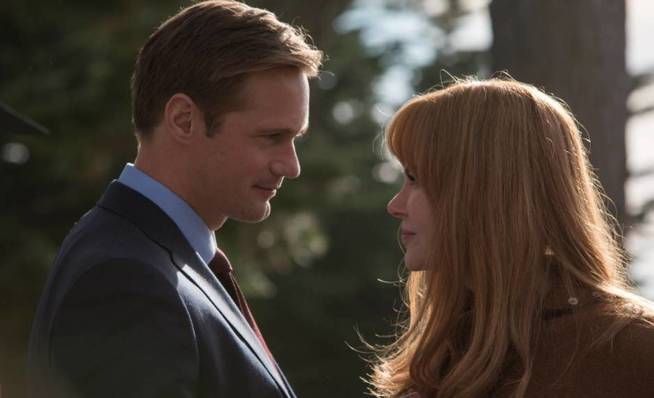
4. **Big Little Lies (TV Program): The Facade of Perfection and Its Cracks**From the sun-drenched, seemingly idyllic coastal town of Monterey, *Big Little Lies* unveils a narrative steeped in the subtle, yet pervasive, deceptions that often underpin outwardly perfect lives. This acclaimed television program, much like its film counterparts that promise to “twist, turn, and tantalize,” masterfully uses the art of the lie to explore the dark undercurrents beneath a polished veneer of suburban affluence. It’s a poignant portrayal of how personal secrets, societal pressures, and the silent struggles within can create a formidable web of untruths, ultimately leading to unforeseen and tragic consequences.
The series cleverly positions itself as an exposé of hidden truths, illustrating how each character, particularly the women at its center, harbors distinct deceptions. These aren’t always grand, cinematic falsehoods but often deeply personal omissions, protective lies, or carefully constructed facades designed to navigate the intricate social hierarchies and personal traumas of their lives. The allure lies in the slow, agonizing reveal of these “separate lies,” demonstrating how seemingly isolated decisions can weave together into a tapestry of shared secrets, reflecting the collective anxieties and vulnerabilities inherent in human relationships.
What *Big Little Lies* truly excels at, in the investigative spirit of compelling journalism, is delving into the psychological toll of maintaining such extensive deceptions. It vividly portrays “our own fears and fascinations with honesty in our lives,” showcasing the emotional cost paid by those who live behind a veil of untruths. The narrative’s power is in its meticulous unraveling of these layers, demonstrating how the weight of unspoken truths and the desperate measures taken to protect them gradually erode trust and foster an environment ripe for misunderstanding and, ultimately, violence.
The societal commentary embedded within *Big Little Lies* is particularly sharp, aligning with the critical eye often employed in analyses of power and persona. It scrutinizes the pressures on women to maintain a certain image, to conceal vulnerabilities, and to uphold a façade of domestic bliss, even when their realities are fraught with abuse, trauma, and profound dissatisfaction. The “lie” here is not just individual but systemic, a collective agreement to ignore the inconvenient truths lurking beneath the surface of their affluent community, until a shocking event forces everything into the harsh light of day.
This series brilliantly leverages its deceptive premise to explore themes of female solidarity, abuse, and the complexities of motherhood. By presenting a world where every character is, in some way, deceiving either themselves or others, *Big Little Lies* compels viewers to question the nature of truth itself. It’s a powerful testament to how stories centered on the pervasive theme of deception can profoundly impact our understanding of human connections and the often-unseen struggles that lie beneath the surface of everyday life.
5. **Lies Hidden in My Garden (TV Program): Unearthing Secrets in Domesticity**Another compelling narrative that explicitly uses “lies” in its title, *Lies Hidden in My Garden*, invites viewers into a world where the seemingly mundane setting of domestic life conceals a chilling tapestry of deception and mystery. This television program captivates by adhering to the promise of stories that “twist, turn, and tantalize,” focusing on the unsettling discovery of a hidden truth that shatters the tranquility of a privileged existence. It exemplifies how, in the realm of narrative artifice, the most profound deceptions often lie closest to home, buried beneath layers of routine and assumed innocence.
The series masterfully plays on the universal intrigue of uncovering what is concealed, especially within spaces that are typically seen as sanctuaries. The central deception—a foul odor emanating from a perfect garden—acts as a potent metaphor for the rot of secrets festering beneath the surface of a seemingly flawless life. This sensory detail immediately draws the audience into an investigative mindset, much like a seasoned journalist uncovering a scandal, compelling them to question every character and every interaction, knowing that appearances are fundamentally misleading.
*Lies Hidden in My Garden* delves deep into the psychological impact of living with, and unraveling, profound deceptions. It explores “our own fears and fascinations with honesty in our lives” by presenting characters whose realities are slowly but irrevocably altered by the emergence of these buried truths. The suspense is not merely about identifying the lie, but understanding the intricate motivations behind it and the devastating ripple effects it has on the individuals involved. This makes for a narrative that is both gripping and emotionally resonant, forcing a re-evaluation of trust and perception.
The show also provides a subtle yet sharp cultural commentary on the expectations placed upon individuals, particularly women, within the confines of domesticity. The pristine garden, a symbol of domestic perfection, becomes the very site of corruption, suggesting that the pursuit of an idealized life can lead to the darkest of compromises and the most elaborate of deceptions. This focus on the internal lives and hidden struggles of its characters, often powerful figures trapped by circumstance, aligns perfectly with the sophisticated storytelling typical of in-depth features.
Ultimately, *Lies Hidden in My Garden* is a brilliant demonstration of how a single, seemingly isolated lie can become the linchpin for an entire narrative, unraveling an entire constructed reality. It underscores the idea that while deception can be a protective shield, it is also a fragile one, prone to collapse under the weight of its own secrets. The program’s ability to meticulously expose these hidden truths makes it a standout example of how the theme of deception can drive a truly compelling and impactful story.
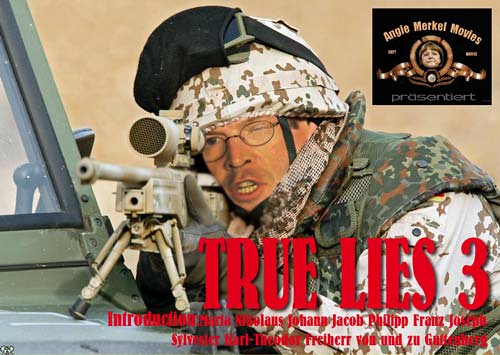
6. **True Lies (TV Program): Recasting Deception for a New Generation**Following in the footsteps of its cinematic predecessor, the *True Lies* television program takes the foundational premise of a secret agent leading a double life and re-imagines it for a contemporary audience, showcasing a fresh approach to a narrative built on fundamental deception. Like the best stories with “lies” in their titles, this series continues to explore themes of trust, betrayal, and the complex interplay between reality and artifice, proving that the concept of a “true lie” remains as captivating as ever in an episodic format.
The transition from film to television allows for a more protracted and nuanced exploration of the protagonist’s concealed existence. Over multiple episodes, the series can delve deeper into the intricacies of maintaining such an elaborate charade, examining the constant pressure and the personal cost of living a life where one’s true identity must always remain hidden. This extended narrative canvas provides ample opportunity to develop the characters’ internal struggles and the external threats that continually jeopardize their carefully constructed falsehoods, offering a detailed psychological portrait of those who live in the shadows.
A significant aspect of the *True Lies* TV program is its ability to offer cultural commentary on modern relationships and the concept of identity in an age of pervasive surveillance and evolving gender roles. While the core deception remains, the series can update and refine the dynamics, exploring how a secret agent spouse impacts family life in the 21st century. It subtly probes “our own fears and fascinations with honesty in our lives,” particularly within intimate partnerships, questioning how much truth is truly necessary for a relationship to thrive, or what constitutes an “honest” life when one’s profession demands ultimate secrecy.
The show also embraces the investigative spirit by continually uncovering new layers of deception, not just from the protagonist, but from various characters and situations they encounter. Each mission, each personal dilemma, presents a fresh set of falsehoods to navigate, keeping the audience on the edge of their seats as they watch truths unfold and new lies take their place. This episodic nature allows for a continuous “unfolding of concealed truths,” making the show a dynamic exploration of how deception shapes character and consequence over time.
Ultimately, the *True Lies* TV program stands as a compelling iteration of a classic deceptive premise. It demonstrates how a narrative built on the fundamental “lie” of a double life can be effectively re-contextualized, allowing for deeper character development and more extensive commentary on the societal implications of secrecy. By showcasing diverse approaches to storytelling centered on the pervasive theme of deception, it solidifies its place among those narratives that masterfully explore the profound impact of untruths on human existence and relationships.
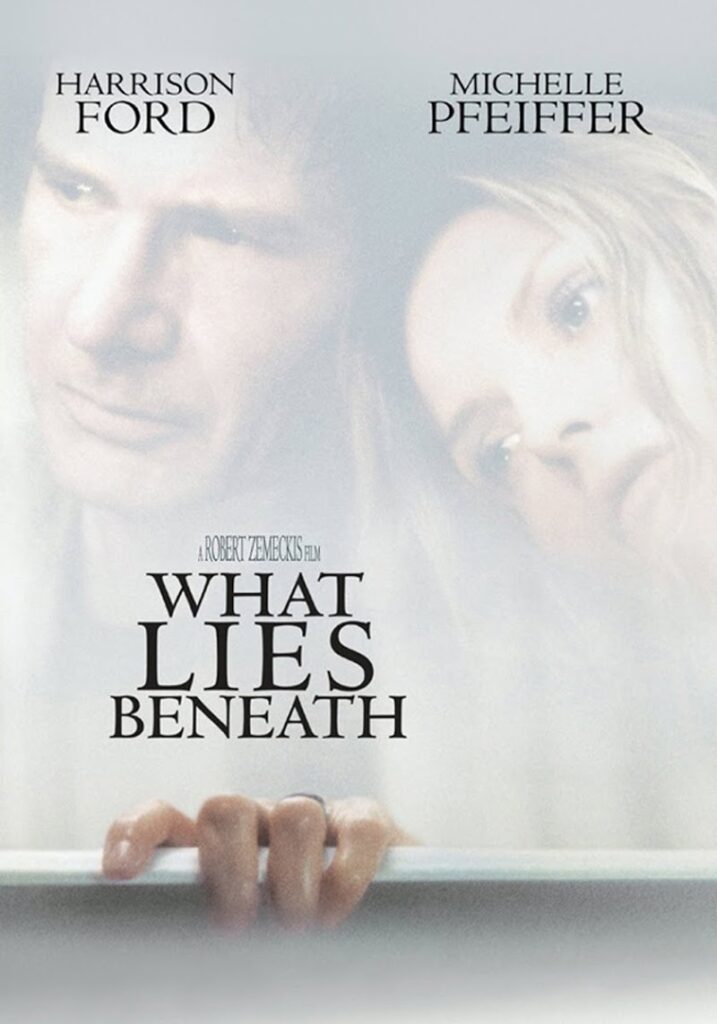
7. **What Lies Beneath (2000 Film): The Haunting Truths of a Marriage**Delving into the realm of the supernatural psychological thriller, *What Lies Beneath*, the 2000 film, uses its very title to promise an uncovering of deep, unsettling truths hidden just below the surface of a seemingly perfect life. This movie stands as a chilling testament to how a narrative rooted in deception can generate profound suspense and explore the darkest corners of human nature. It masterfully manipulates audience perception, leading viewers down a path of ghost story tropes only to reveal a far more sinister, and human, agenda at its core, making it a compelling entry in our exploration of cinematic lies.
The film initially presents itself as a classic ghost story, with Claire Spencer (Michelle Pfeiffer) experiencing eerie phenomena in her picturesque lakeside home, seemingly haunted by a spirit connected to her husband, Norman (Harrison Ford). This initial premise is the film’s first, most captivating lie, expertly designed to misdirect the audience. We are led to believe that the malevolent force is external, supernatural, and tied to a past tragedy, compelling us to engage with the narrative on a gothic, ethereal level, perfectly setting up its dramatic reversal.
Yet, as the suspense mounts and the layers peel back, *What Lies Beneath* reveals that the true horror, and the central deception, is far more grounded and insidious. The “lie” is not just about a ghost, but about the carefully constructed facade of a successful, loving marriage and the terrifying secrets one spouse is willing to bury, quite literally, to maintain control. This shift from supernatural mystery to human malevolence is where the film truly embodies the concept of a story that begins as one thing and ends as another, forcing a re-evaluation of everything previously assumed.
In the sophisticated style of deep-dive storytelling, the film meticulously exposes the psychological manipulation and power dynamics within the marriage. Claire’s increasing paranoia is expertly framed, making the audience question her sanity alongside her husband’s increasingly erratic behavior. This plays directly into “our own fears and fascinations with honesty in our lives,” exploring the unsettling possibility that the people we trust most might be capable of the darkest betrayals. The film transforms from a ghostly tale into a chilling exposé of marital deception and the desperate lengths to which someone will go to protect a dark secret.
Ultimately, *What Lies Beneath* captivates by presenting a continuous unfolding of concealed truths, demonstrating how a foundational “lie” can be used to generate intense psychological suspense and a devastating reveal. It’s a masterful blend of genre conventions, where the supernatural elements serve as a smoke screen for the very human horror of betrayal and murder. The film stands as a potent reminder that sometimes, the most terrifying lies aren’t conjured by specters, but by the people we share our lives with, showcasing the profound impact of deception when it shatters the trust at the heart of our most intimate relationships.
As we draw this illuminating journey through the landscape of narrative deception to a close, it becomes abundantly clear that the most compelling stories are often those that dare to lie to us. From the biting social commentary disguised as rebellion in *Fight Club* to the intricate personal untruths unraveling in *Separate Lies* and *Big Little Lies*, and the chilling domestic secrets of *Lies Hidden in My Garden* and *What Lies Beneath*, these cinematic and television masterpieces demonstrate a profound understanding of the human condition. They don’t just entertain; they challenge, provoke, and ultimately enlighten, reflecting “our own fears and fascinations with honesty in our lives.” These narratives remind us that while truth may be a comforting ideal, a well-crafted lie, when deployed with artistic precision, can reveal truths far more profound and enduring, leaving us questioning not just the plot, but the very fabric of our perceptions. It’s a testament to the power of storytelling when it boldly uses deception as a tool for deeper engagement, inviting us to look closer, think harder, and ultimately, discover something unexpected about ourselves and the world around us.




